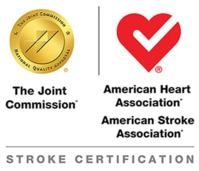Door to Start of Device (DTD) time
Percentage of patients with acute ischemic stroke arriving within 24 hours of LKW or symptom discovery who receive mechanical endovascular reperfusion therapy and for whom the first pass (i.e., deployment) of the device is = 60 minutes after arrival in patients who are transferred in from an outside hospital / MSU or < 90 minutes after arrival for patients presenting directly.
Community Hospital East: 71%
All IN Hospitals: 54%
Door to Start of Revascularization (DTR) within 120 Minutes
Percentage of patients with acute ischemic stroke who receive mechanical endovascular reperfusion therapy and for whom the first pass (i.e., deployment) of the device is <= 120 minutes after hospital arrival.
Community Hospital East: 83%
All IN Hospitals: 77%
Door to Recanalization/Reperfusion (DTRp) within 120 Minutes
Percentage of patients with acute ischemic stroke who receive mechanical endovascular reperfusion therapy and for whom the time from hospital arrival to recanalization/reperfusion with TICI grade 2b or 3 is <= 120 minutes.
Community Hospital East: 79%
All IN Hospitals: 71%

 Community Health Network is committed to caring and educating those at risk for cerebrovascular disease, which can cause stroke. Community Hospitals
Community Health Network is committed to caring and educating those at risk for cerebrovascular disease, which can cause stroke. Community Hospitals